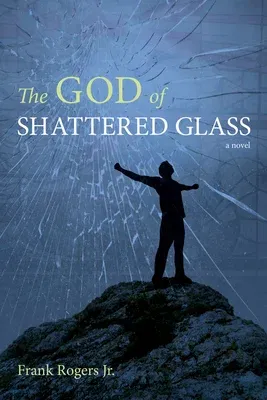Description: Where does one find hope in the midst of profound
suffering? Tony Backman aches to know. A blues-harmonica-playing child
psychologist at a residential treatment center in Santa Rosa,
California, Tony specializes in narrative therapy. His story-based
technique empowers abused teenagers to reimagine their lives through
myths and folktales and so restore their vitality. Such vitality,
however, eludes Tony in his own life. Mired in depression, he longs for
his fractured family and fends off childhood flashbacks too painful to
face. Tony's mentor recommends classical underworld myths as a roadmap
for the spiritual journey toward healing and hope, but Tony is too
drained for the undertaking. Until Carey Foster enters his life. Carey
is a golden-voiced eleven-year-old choral soloist at a local Catholic
boys' home. Brought to Tony's treatment center with his wrists sliced,
Carey cowers mutely with his secrets in the center's locked ward, a
flicking middle finger his only beacon. Carey's healing depends on
Tony's ability to navigate the labyrinth of deception and cryptic
self-disclosure that conceals the soul's darkest secrets. It also
depends upon Tony's willingness to navigate the labyrinth of love and
disappointment lodged in his own soul. At once a psychological study of
how trauma is healed; a hero's journey through the underworld of abuse,
betrayal, and shattered faith; and a theological thriller in search of a
credible and sustaining Sacred in the midst of unspeakable suffering,
The God of Shattered Glass reveals that stories do indeed heal, and that
the way to God is not up, but down. Endorsements: ""This novel is a
breath-taking, soul-searing, and truth-telling experience. When you
allow Frank Rogers to take you into the lives of child psychologist Tony
Backman and the boy Carey Foster--after a few sentences, you will be in
Rogers' masterful grip--then you will enter straight into the depths of
the human condition . . . I urge all serious readers to put on a diving
mask and plunge into The God of Shattered Glass. This is a story that
dares those who seek and teach truth to look into its mirror."" --Carol
Lakey Hess author of Caretakers of our Common House: Women's Development
in Communities of Faith ""Would that more of us theologians could write
in this vein . . . It is one thing to assert that God is utterly
compassionate toward every creature and calls us to a like compassion.
It is quite another to draw us through the depths of hell and hatred to
a realization of that compassion, even for ourselves. Frank Rogers'
novel existentially deconstructs the cosmic patriarchy that so distorts
the thinking of believers and unbelievers alike--and all the false
expectations it has conjured up."" --John B. Cobb Jr. author of For the
Common Good and Christ in a Pluralistic Age ""As somebody who has spent
over thirty years working with troubled youth, I found Frank Roger's The
God of Shattered Glass a revelation. He not only knows the boys in
residential homes, he knows the world that created them. Equally
important his narrator, Tony, a psychologist, who tries to save a boy
who has been abused, comes alive as a passionate person who is willing
to 'dine with demons, ' and reveal his hopes and fears. This book
illuminates a much neglected corner of our world and shows how it is
connected to the rest of us."" --Daniel Judah Sklar playwright and
author of Playmaking: Children Writing and Performing Their Own Plays
About the Contributor(s): Frank Rogers is Professor of Spiritual
Formation and Narrative Pedagogy at the Claremont School of Theology. As
a narrative educator and spiritual director, he works with marginalized
young people and adult survivors of childhood abuse, using story as a
means of personal healing and social empowerment. Their stories, and
his, inform this novel. Frank lives in Southern California where he runs
in the foothills and hikes in the mountains. This is his first novel,
and the firs


